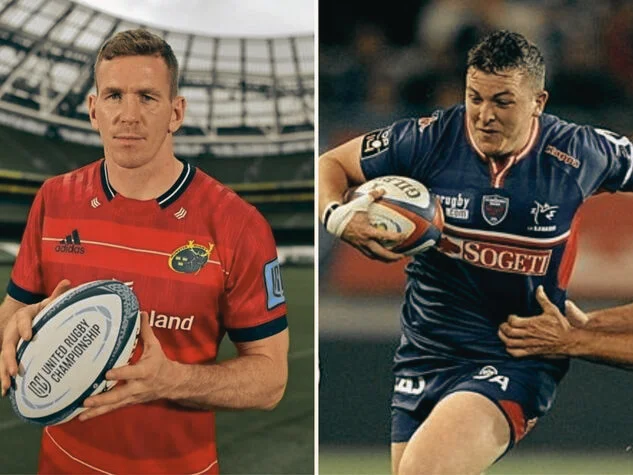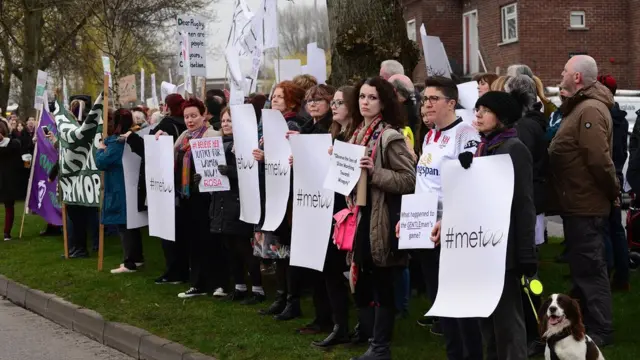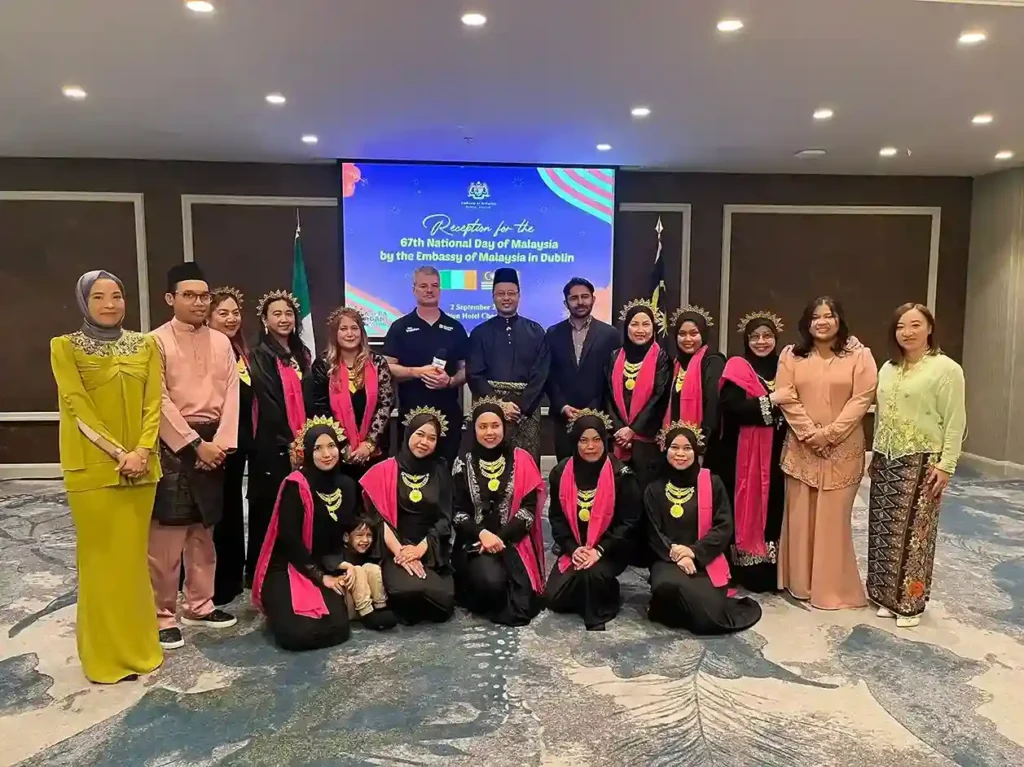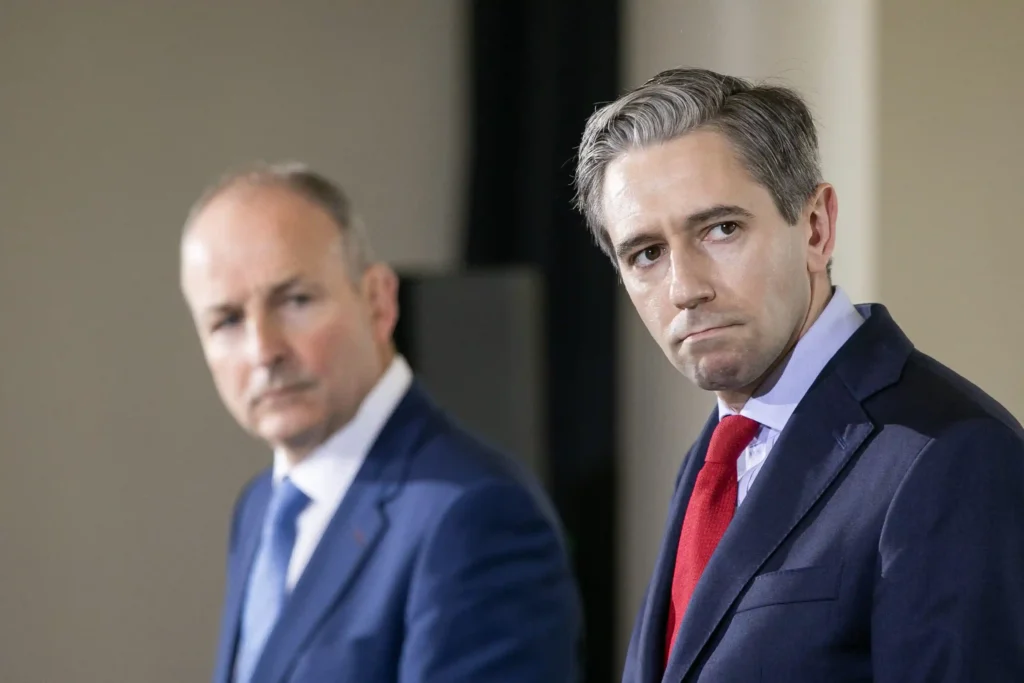Irish Rugby Players Convicted in Shocking French Rape Case

The conviction of two Irish rugby players and three of their former teammates joins a disturbing hall of shame for both sports and the legal world. The high profile trial in Bordeaux, France ended in guilty verdicts that resulted in media attention and wide spreading protests.
Outside La Cours d’Assises, where the trial took place, the demonstrators carried banners urging justice for victims of violence against women. Less than six and a half years ago, it happened, and raised important questions about consent, about accountability, about public figures being held to account.

Image Source: Daily Mail
French rugby club FC Grenoble accused of sexually assaulting 20 year old woman – The case concerned events that happened in March 2017. The accusation was discovered after the woman’s mother contacted Bordeaux police. The two Irish rugby players who had been staying in a hotel near Bordeaux city, Mérignac, after the team’s match against the Bordeaux rugby team, had joined the other players.
The victim had no memory of the period between drinking alcohol at a nightclub and waking up naked in a hotel bed surrounded by several men, she says. The charges came against Irish rugby player Denis Coulson, France’s Loick Jammes, and New Zealander Rory Grice of gang rape. But all three denied the allegations, saying any sexual interaction had been consensual.
The Trial and Its Delays
The trial had been delayed by six months earlier this year after Coulson was involved in a severe car accident in Ireland. His lawyers said his injuries prevented him from communicating effectively with his legal team. In December, proceedings resumed, behind closed doors, at the request of the victim to protect her anonymity and privacy.
Another two former FC Grenoble players, Chris Farrell and Dylan Hayes, were also charged in court proceedings.One of the other Irish rugby players, Farrell had been called up to Ireland’s Grand Slam winning Six Nations campaign in 2018, was charged with failing to prevent a crime.
Farrell was playing for Munster Rugby at the time, and the club last month confirmed he had stepped back from the squad pending the outcome of the legal proceedings. New Zealander Dylan Hayes faced similar charges.
The trial was held in France’s highest criminal court, La Cours d’Assises, and the jury, made up of three judges and six lay people, deliberated for more than nine hours before reaching a verdict. Like many sports cases around the world, its profile was helped by an avalanche of media and public attention, given in particular in France as part of a broader debate about sexual violence and accountability in professional sports.
The Verdict Against Denis Coulson and Loick Jammes
There was a high presence of police outside the courtroom in the evening of the verdict. The jury handed down its decision shortly before 9 p.m. local time on Monday, read out by Judge Marie-Noëlle Billaud. The Ireland and France rugby were convicted of rape.
The convicted rugby players Grice was sentenced to 12 years in prison, Coulson and Jammes to 14 years each. Lawyers for all three immediately planned to appeal the decision.
Both Farrell and Hayes were convicted of failing to prevent a crime. Farrell was to serve a four year prison sentence with two suspended. Under house arrest and wearing an electronic device, he served the full sentence. Hayes received a two year suspended sentence. Victim’s family members joined the courtroom to hear the verdicts. This trial had an emotional toll, especially on the victim who’s life was completely changed by it all that night.
The Long-Term Effects Of The French Rape Case Verdict
The rape case involving Irish rugby players has raised important questions regarding lack of consent and the way that sexual violence is adjudicated. The high profile of the trial brought the difficulties faced by those who wish to navigate the legal process and get justice. Together wrapped with it also highlighted that sports organisations had responsibility to steer allegations against their players.
In addition to compounding the case, the involvement of high profile athletes, particularly foreign based athletes, made the case even more complex. It was a not surprising response by Munster Rugby to suspending Farrell while the proceedings went ahead as those responsible for the reputational risks faced by sports clubs were implicated when their players were accused of serious allegations.
It also highlighted how such cases can have an impact on the wider rugby community — something it takes pride in finding strength in values such as respect and teamwork.
The victim’s lawyer, Grègoire Mouly, emphasized the importance of the verdicts, stating: “This is a strong message that victims are being believed.” That is a big step forward… for justice.” His comments were widely felt, however, especially in France where the case has reignited debates about what constitutes consent in the law. Rape laws should put consent at their heart, putting survivors better protected and supported, say legal experts and activists.
A Global Spotlight On Incidents Like This
The trial of the Irish rugby players is one in a string of high-profile sex misdemeanour cases against professional athletes. A court in Argentina dismissed rape charges against two French international rugby players just days before a verdict in Bordeaux. These cases have prompted wider talk about the culture of silence and impunity that sex offences in the world of professional sports too often come with.

Image Source: BBC
The problem of consent, respect and accountability is also in the spotlight at the Bordeaux trial and it should lead to very much needed cultural and institutional changes. The convictions in this case are a momentous battle against gender based violence, which the appeals process will continue.
Conclusion
The convictions of the Irish rugby players and their former teammates about sexual assault charges underlines the seriousness of these allegations and why we must be held accountable. In this case, the responsibility the public figures and organisations carry to build such a culture of respect and integrity have been rehashed.
The trial while still in progress, is the central moment in the much larger conversation of sexual violence, consent and justice during the appeals process.
The verdict is a source of some closure for the victim, but it also drives home that people still need to see systemic change because of the way that people, especially women of color, are believed and supported. Needless to say, this will have far reaching effects in the rugby community, and beyond, as a reminder of the need to tackle such things strictly.
Frequently Asked Questions
LATEST NEWS
DISCOVER MORE






